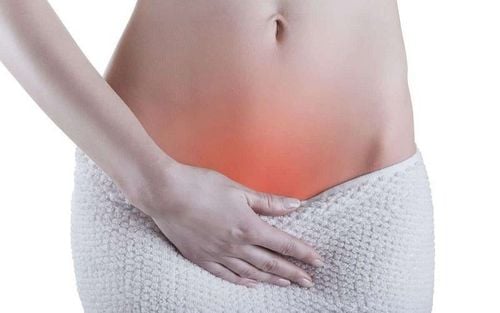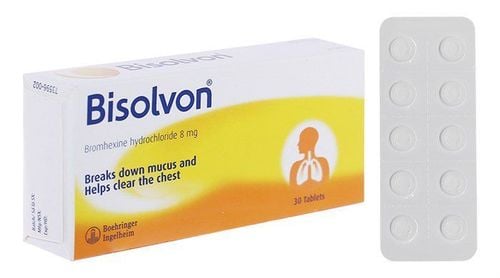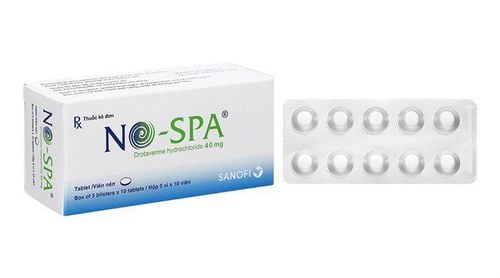This article was written by Tran Thi Diem Trang, MSc, MD of the Department of Examination and Internal Medicine - Vinmec Central Park International General Hospital.
Chronic obstructive pulmonary disease is a common disease in the elderly that causes several serious consequences, including constipation. In fact, the elderly often don't get enough fiber, don't chew their food properly, and don't drink enough water. All of these factors can lead to indigestion and chronic constipation.
1. Chronic Obstructive Pulmonary Disease
Chronic obstructive pulmonary disease (COPD) is a respiratory disease characterized by an irreversible obstruction of the airways. This airway obstruction frequently worsens over time. Chronic bronchitis accounts for approximately 85% of chronic obstructive pulmonary disease, with emphysema accounting for the remaining 15%.
Chronic obstructive pulmonary disease is a common group of diseases worldwide which includes in Vietnam. Accordingly, the severity of COPD is divided into 4 stages from mild to severe based on respiratory function measurement and FEV1 index. Stage 4 is the most severe; respiratory function is extremely low, and patients consistently experience dyspnea even during routine activities, their quality of life is severely impacted. Patients have difficulty breathing even when performing personal hygiene. If the patient is constipated, dyspnea is more severe, and hospitalization may be required in an exacerbation.
Constipation occurs when a patient has fewer than three defecations per week, which are frequently accompanied by firm stools that are difficult to pass out.
Constipation can be caused by a variety of factors.However, in persons with chronic obstructive pulmonary disease, constipation forces them to breathe and can lead to an exacerbation.
2. Causes of Constipation
Some of the main causes for constipation are as follows:
- Hirschsprung's Disease
- Endocrine conditions: hypothyroidism, hyperparathyroidism, pregnancy,
diverticulosis, intestinal pseudo-obstruction. - Autoimmune disorders include scleroderma and amyloidosis.
- Toxic colitis.
- Medications: Opiates, anticholinergics, and antidepressants.
- Low potassium, magnesium, and calcium levels in the blood.
- Tumors and stenosis
- Neurological conditions include spinal cord injury, sacral plexus injury, Parkinson's disease, and irritable bowel syndrome.
- Psychological conditions include depression and eating problems.
In this article, we only discuss functional constipation.

3. Why do individuals with chronic obstructive pulmonary disease frequently experience constipation?
3.1. Genetic Factors
Chronic obstructive pulmonary disease is common in elderly people; they may eat less fiber, chew less fully due to dental disorders, and drink less water, which can lead to constipation.
Some elderly or seriously ill patients who need the support of others in their daily activities may have a "shyness" of defecating. Every time they feel like defecating, they try to endure it. So the stool stays in the gut, gets clumped together, and thickens up. Over time, this makes the stimulating receptors less responsive, which makes constipation easy to get.
3.2. Chronic obstructive pulmonary disease factors
Patients with chronic obstructive pulmonary disease may lose more water through breathing and sweating (due to dyspnea). On the other hand, poor eating (due to disease and fear of bloating from eating too much, making it difficult to breathe) causes dehydration, which makes stools concentrated and causes constipation.
Hospitalized patients may be affected by changes in their living environment, being treated with strangers, sharing a toilet, and changing eating and hygiene habits, which can easily cause constipation.
In addition, some other factors can cause constipation, such as fever and medication.
4. Impacts of constipation on patients with chronic obstructive pulmonary disease
Constipation can cause abdominal pain, a feeling of bloating, and obstructive breathing, making it more difficult to breathe. On the other hand, constipation and the use of anti-constipation medications can affect the absorption of some medications used to treat chronic obstructive pulmonary disease.
Straining during bowel movements due to constipation can cause dyspnea and respiratory failure. Because bowel movements cause dyspnea, patients try to reduce the frequency they eat and defecate. This creates a vicious cycle.

5. Preventing constipation in people with chronic obstructive pulmonary disease
To prevent constipation, people with or without chronic obstructive pulmonary disease should do the following:
- Eat enough nutrients and fiber.
- Divide daily meals to guarantee a sufficient supply of essential energy and prevent bloating, which can lead to dyspnea.
- Drink enough water and use a bottle with a capacity of 1.5 - 2 liters to store drinking water to drink gradually during the day. (unless otherwise prescribed by a doctor).
Get into the habit of defecating on time. - Daily exercise is a way to stay healthy and avoid constipation.
- Follow the treatment for chronic obstructive pulmonary disease to reduce the rate of exacerbations and maintain respiratory function.
- Telling the doctor about constipation will help to get the right advice and medicine (if needed).
Constipation is a disease that not only causes discomfort for healthy people but also causes many serious complications for people with chronic obstructive pulmonary disease. Therefore, people with chronic obstructive pulmonary disease need to follow the doctor's instructions to prevent constipation.
Vinmec International General Hospital is a medical center for examination, prevention, and treatment of many diseases of the digestive and respiratory tracts. With a team of good and specialized doctors and a system of modern equipment, perfect medical services will bring satisfaction to customers.














